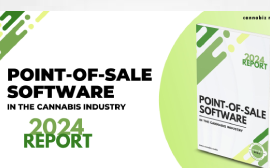We spoke to Hunter earlier in the year on our Koala Karma podcast and thought a quick chat for those of you who like to read things might be instructive too.
We thank Hunter for taking time out to answer our questions.
Here’s a bit of background on Hunter’s professional background
Hunter Neubauer, Co-Founder and Chairman of the Board at Oregrown, is a passionate and multifaceted leader focused on expanding Oregrown’s wholesale and distribution capabilities, cultivation efficiencies and business development opportunities.
He fosters key sales relationships and advocates for industry reform and advancement through numerous civic and community activities.
Hunter began his career selling medical devices, surgical instruments and implants, working with surgeons in the operating room before taking over a large territory for a global medical company.
Leveraging these skills in business development and large-scale management, Hunter says he is able to craft creative solutions that will help Oregrown develop as a brand and a business. He sits on numerous boards and committees, including as a board member of Oregon Cannabis Association, where he also serves as the chairman of the group’s Enforcement Reform Committee.
He also is a member of the Board of Directors at the Bend Chamber of Commerce and the Chamber’s Advocacy Committee.
He also serves as the president of the Oregon Business Collective, a coalition of cannabis entities.
Hunter lives in Bend with his wife and children and enjoys snowboarding, surfing, skateboarding, mountain biking, hiking and camping.
Hunter, thanks for talking with us. Oregon has, as we know, been through all the trials and tribulations that many other states are going through now with regard to licensing and building both a self-sustaining and sustainable cannabis sector.
Firstly, Medical vs. Recreational. Do you think 6 years in these monikers still apply as a legal definition of a cannabis production or retail business?
No, they need to be re-reviewed. And regulators need to be thinking in the best interests of consumers who rely on plant-based therapies for their health and quality of life.
Should states new to regulating cannabis begin to think less in terms of medical vs recreational?
Absolutely, drop the “versus”, the business of cannabis needs to be on equal footing.
Do you think there should be a distinction between pharmaceutical cannabis companies vs cannabis grown for adult use retail?
Yes, pharmaceutical and adult-use retail cannabis are two completely different markets and user groups.
If we are going to provide medicinal cannabis opportunities covered by insurance, we need the ability to go through clinical trials and testing.
Pharmaceutical companies should not be the only groups allowed to produce medicinal cannabis products, and there should be strict standards and regulations surrounding medicinal products for efficacy.
Hunter Talks To Trichomes February 2021
In a perfect world, how would you manage this issue?
I would create advisory groups that include individuals from the current cannabis industry, the FDA, and various leaders in health care, from insurance companies to treatment facilities to help establish a framework that makes sense.
Is Oregon on the right path with regard to these issues ?
Oregon is on the right path to set national standards for quality and product innovation for recreational use, but not on a medical system.
That doesn’t mean that Oregon can’t become a leader in medicinal cannabis, it has the regulatory infrastructure to do so.
Is there anything that Oregon authorities are doing now that illustrates maturity in the bureaucracy of cannabis?
Yes, it’s been a long time coming, but there is now positive communication between the regulators and the industry.
There is a ton of work to be done if we are going to be successful as the industry grows. Oregon and our company, Oregrown, have a phenomenal opportunity to become a leader in quality craft cannabis.
To execute on that opportunity we need to work together and prepare for interstate commerce, not fight or be overregulated and unfairly treated.
The recent changes at the OLCC. Good, bad or indifferent?
The verdict is still out.
The OLCC has multiple advisory committees scheduled to convene this year, but traditionally these meetings have not resulted in positive results for the industry.
Outside of Oregon, we hear little about plans moving forward in the state with the cannabis sector. Are your legislators and the OLCC working on programs to further improve the sector?
Yes, the OLCC has been working hard on creating solutions for a cumbersome and difficult administrative process. If we are going to be able to grow as businesses we need to work fluidly with regulators.
Historically, getting a license approval or transfer could take years. Some companies have been placed on “hold” due to violations that have not gone through a fair process, handicapping any growth whatsoever.
The environment has been “guilty until proven innocent,” which is not consistent with our country’s beliefs.
Is there anything particular in the works that Oregon has learned from experience that other states could jump on right now and save themselves a lot of heartache?
Don’t overregulate, allow vertical integration, establish low barriers to entry, expunge cannabis offenses and allow industry professionals to help develop the program.
What are your views on state-based licensed businesses in cannabis vs. the huge amount of M&A in the sector at the moment that sees the likes of Tilray coming in from Canada and US companies like Trulieve, Cookies and Planet 13 amongst many others in a huge landgrab for retail and production?
Oregrown is a family-owned, single-state operator that has production, processing, wholesale and retail in an extremely competitive market. Even though our journey has been very difficult and financially burdensome, I wouldn’t trade it for anything.
Yes, it would be nice to be operating in a limited-license environment, but at the same time, we wouldn’t have the experience we do now.
I believe this experience is very valuable as markets open up and interstate commerce becomes an opportunity.
The larger MSOs have not been successful in Oregon,
which I believe is very telling.
Are any of these companies trying to move in on the Oregon market?
Cookies is currently making a push in the Oregon market.
Medmen was a disaster, Do you think these 2nd generation companies will fare any better?
I do!
Do you think it is a good idea to go for what we here at CLR call the fast junk food model?
I believe that a real estate play no matter what industry you are in is a good idea. Hopefully, this is what you are referring to, my apologies if I am missing anything.
How is Oregon managing this at the moment are producers and dispensaries maturing at a local level where quality and profit can work together rather than just having to rule the world a la Starbucks or Amazon?
Absolutely, Oregon has a very mature market that is robust and has a ton of variety. There will always be multiple tiers in a cannabis market, but Oregon’s market has shown that quality wins over time.
Oregon has developed a reputation for quality product do you think that still applies?
Absolutely!
We have been watching the new level of enforcement by the OLCC and police especially in Southern Oregon. Is this overzealous enforcement or actually long due?
The enforcement happening is a natural part of the shift to a legal cannabis marketplace.
Here at CLR, we see in CA especially, reports of many industrial-sized illegal grows and with regard to environmental compliance these operations appear to be causing national parks and counties plenty of problems.
What’s your view from Oregon. Should there be even stricter environmental compliance with on the illegal but also on the “regulated” side of things?
Yes. As a corporation operating on the soil of this planet, it is our responsibility to treat the environment with respect. Our love for the outdoors is a shining light in our operations, and we take pride in preserving the land we are fortunate enough to enjoy. By focusing on organic and regenerative practices, we are able to take a conscious stance to continually minimize our impact on the environment.
Finally .. the issue of getting the best quality OR product into other US states and looking at international export markets.
Is the legislature still trying to find solutions?
The Schumer bill is a way off yet and it seems that a lot of so-called Oregon product is getting into other states and even as far as the UK product is being grown locally and then packaged as Oregon product.
This is a big intellectual property issue for regulated state businesses and we’d suggest the state itself, it certainly doesn’t happen in the wine industry.
We are fighting every day to be treated the same as every other legal industry.
This challenge is far from over.
Bills like the SAFE Banking Act, and the Joint Statement on Cannabis Reform Legislation by Sens. Chuck Schumer, Cory Booker and Ron Wyden are steps in the right direction.
I believe that the cannabis industry is showing that we can right the wrongs that our government has instilled upon us as free people.
Cannabis can bring people together so that we can start to make decisions that are beneficial for our society and our planet.
We need to utilize the current spotlight on cannabis legalization and show we can make positive change. It’s our responsibility to show that we can treat our environment as a partner and our people with respect.
What can Oregon do to protect itself? Are discussions happening?
Yes, there are discussions happening. Oregon can take advantage of the lessons we have learned and prepare now for what’s to come.
For the first time in a long time the cannabis industry, Oregon regulators, and the legislature are on the same page.
We recognize the time to become leaders is now. The only way to “protect” ourselves is to work together toward a common and mutually beneficial goal.
We thank Hunter for his time

























